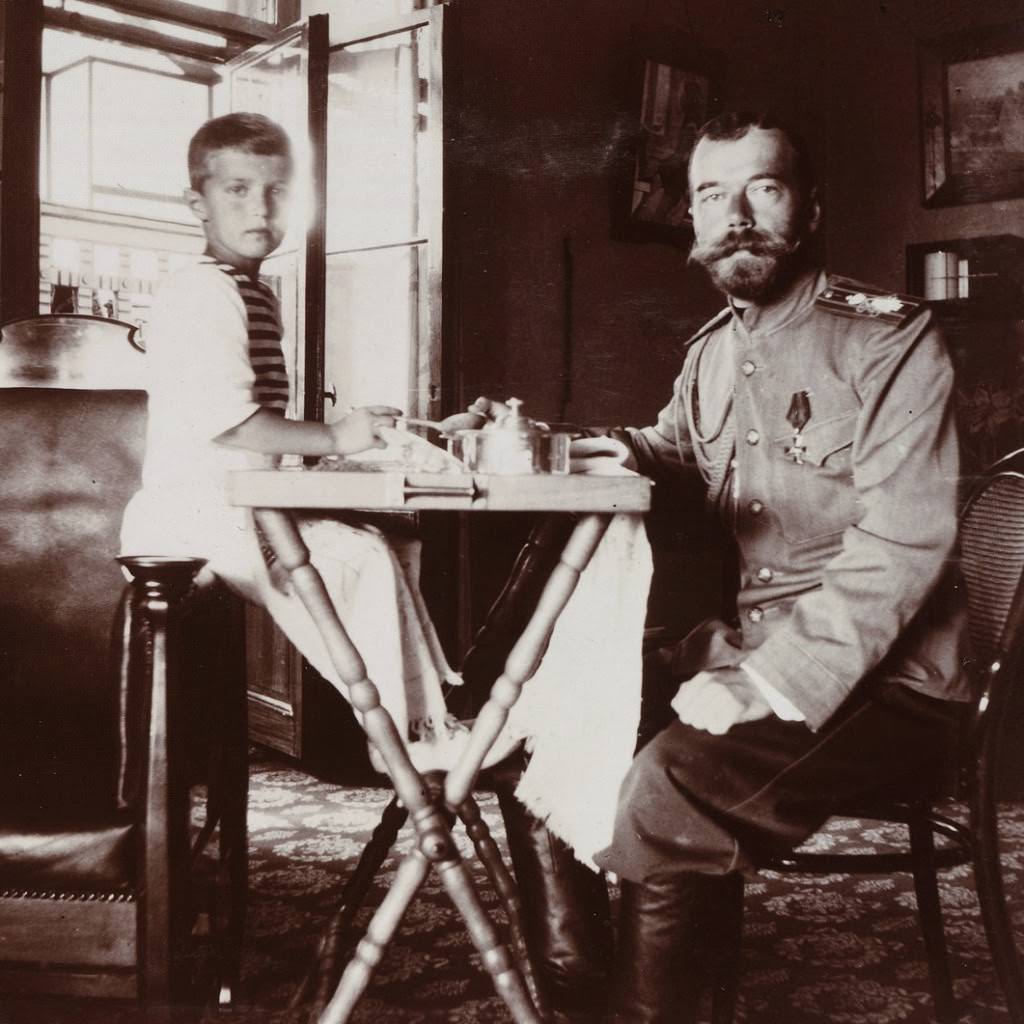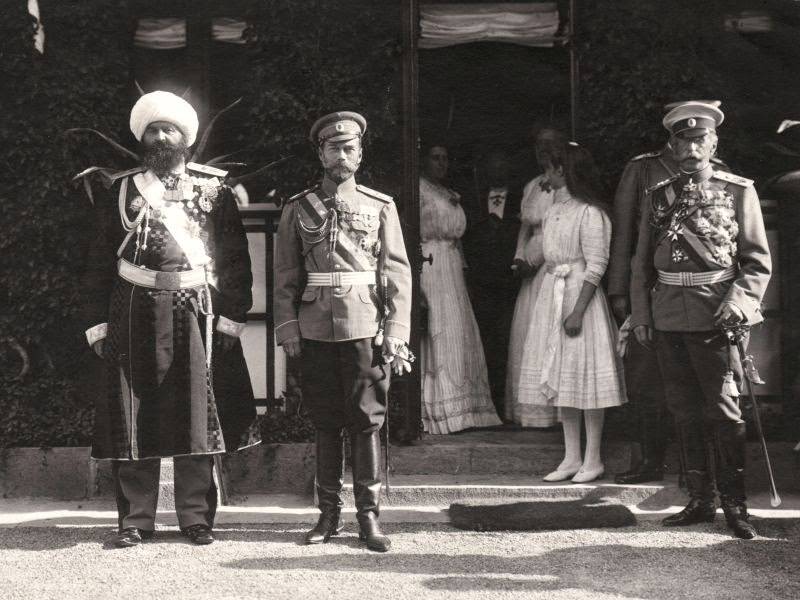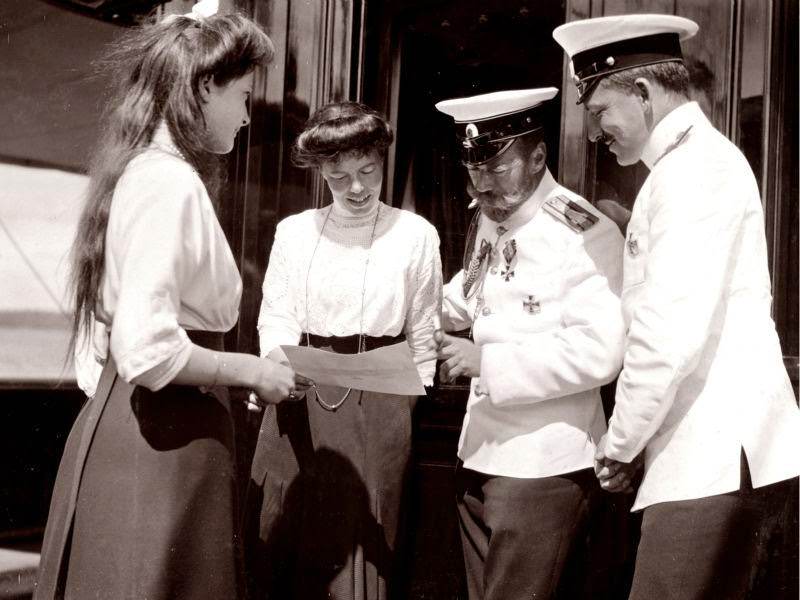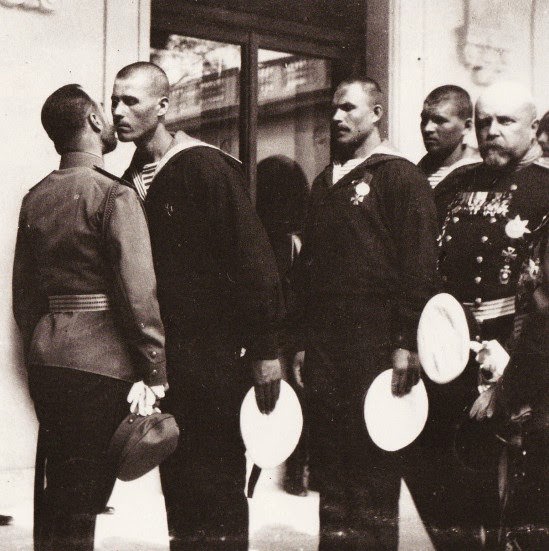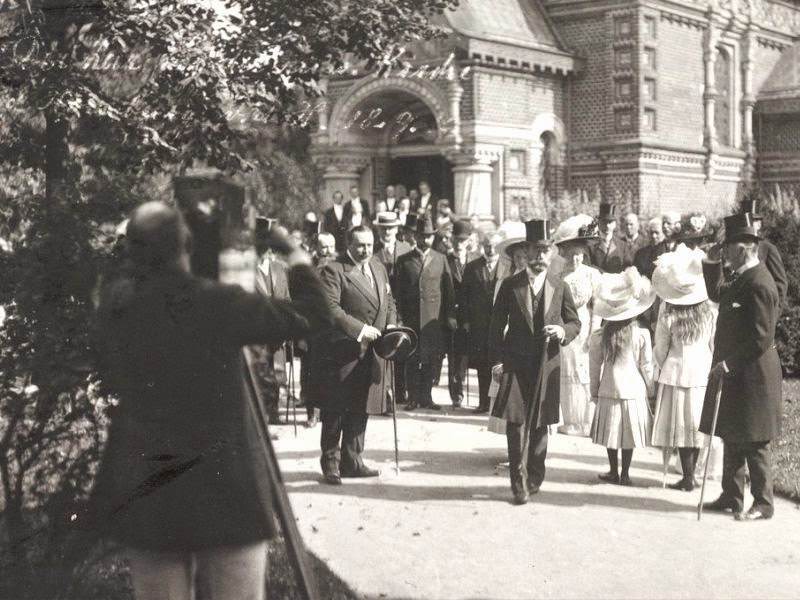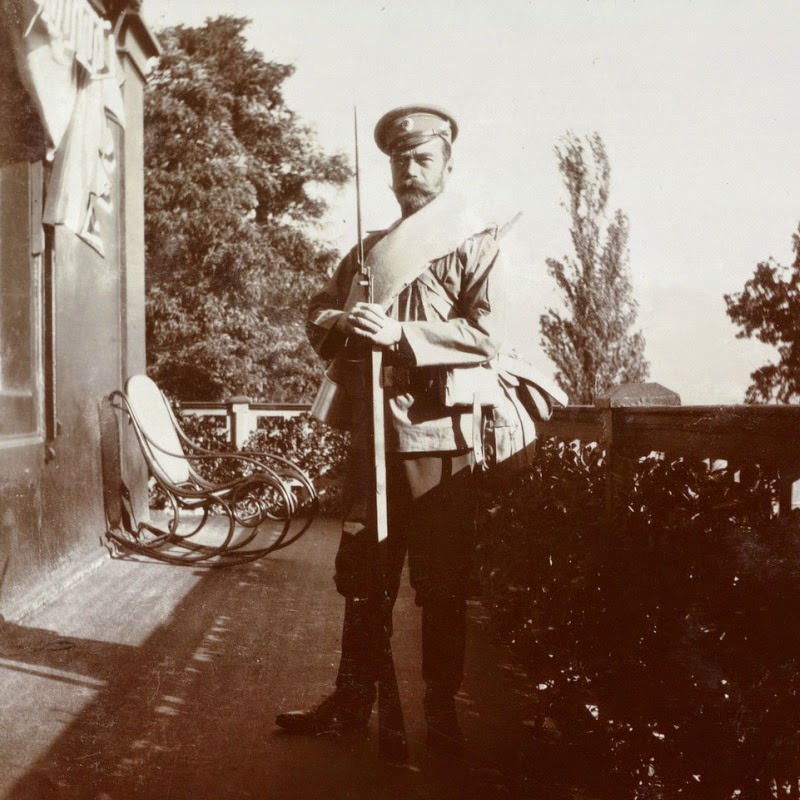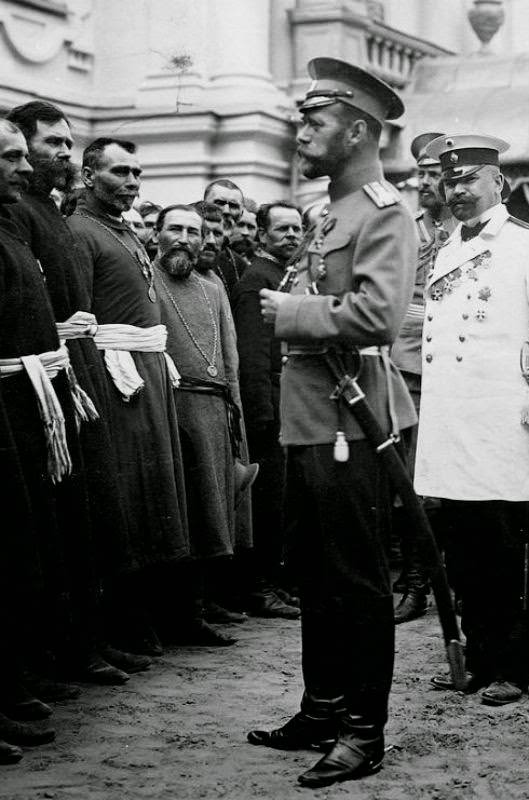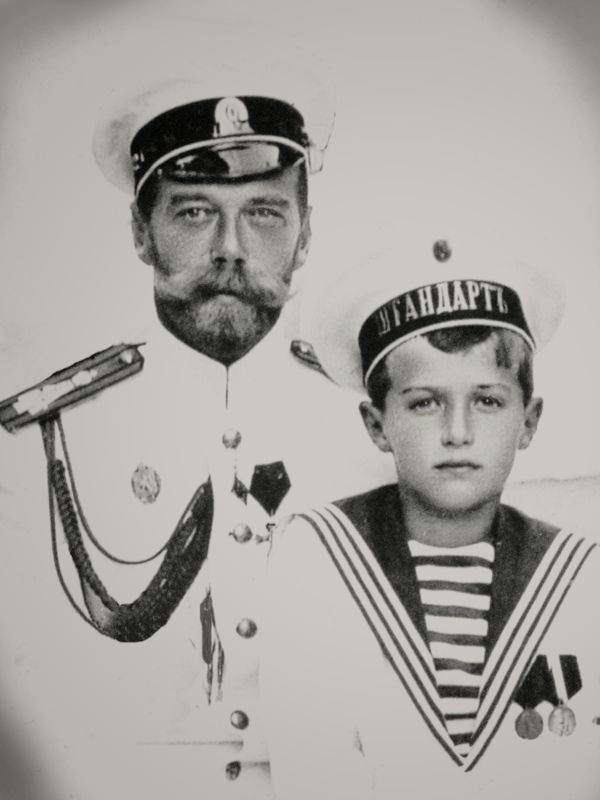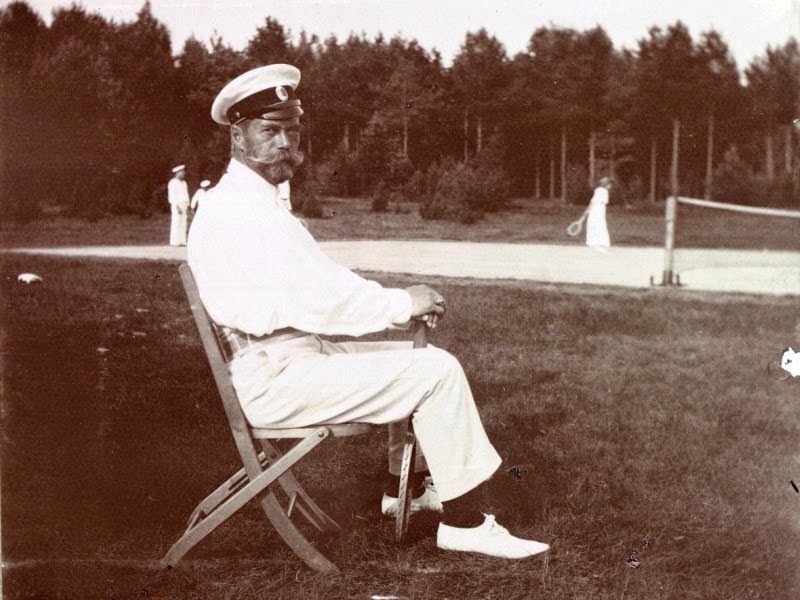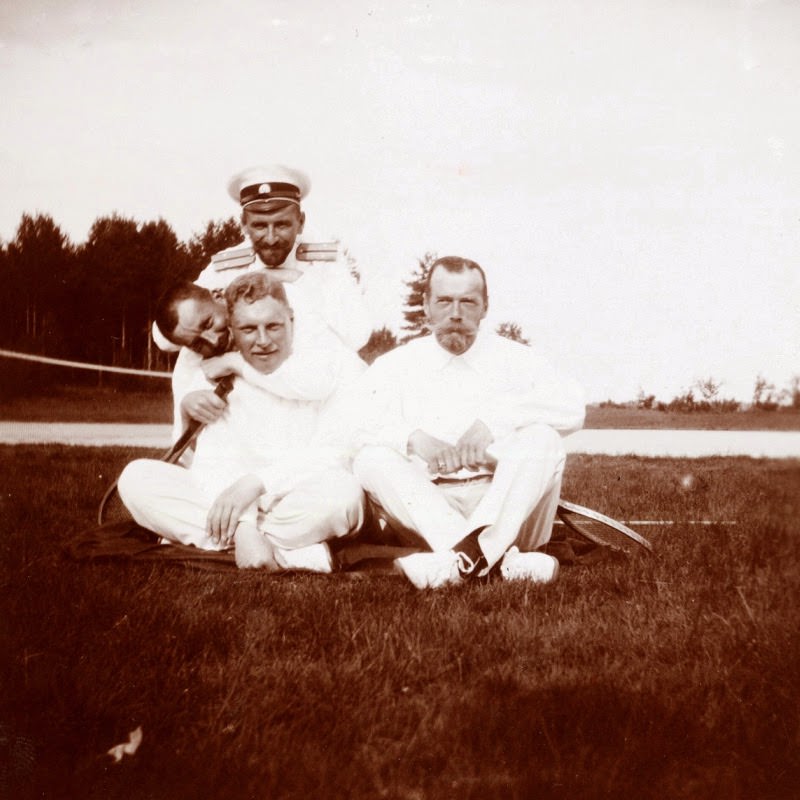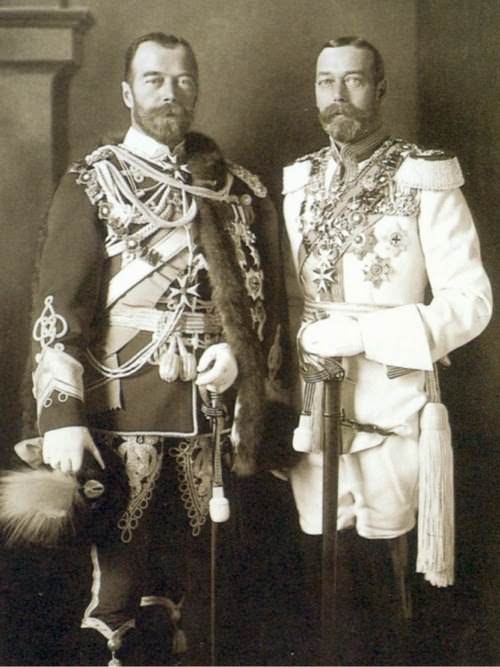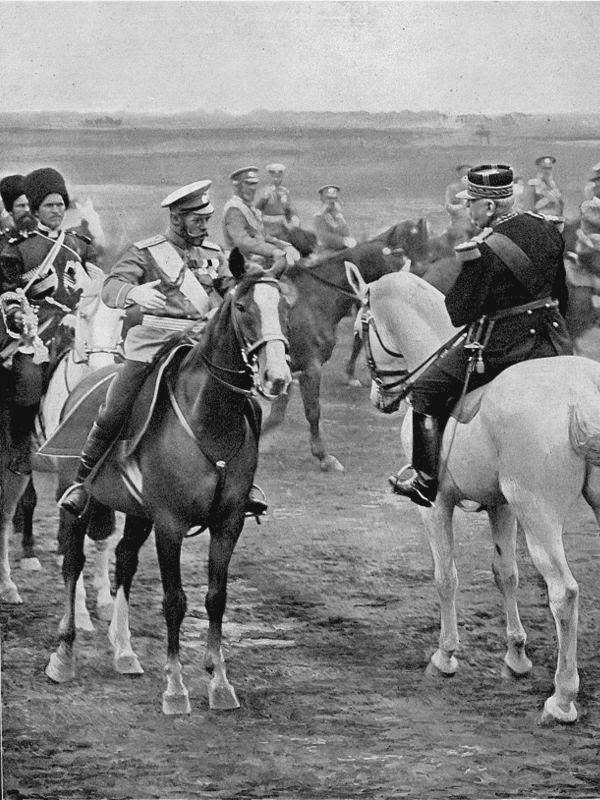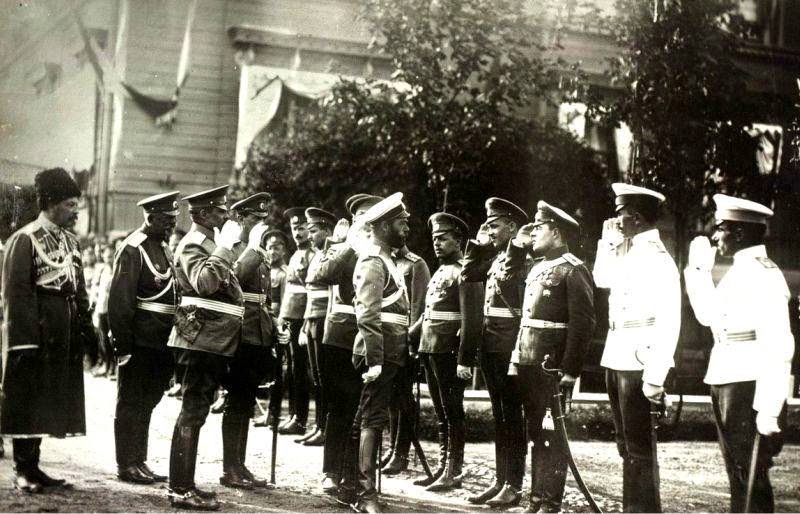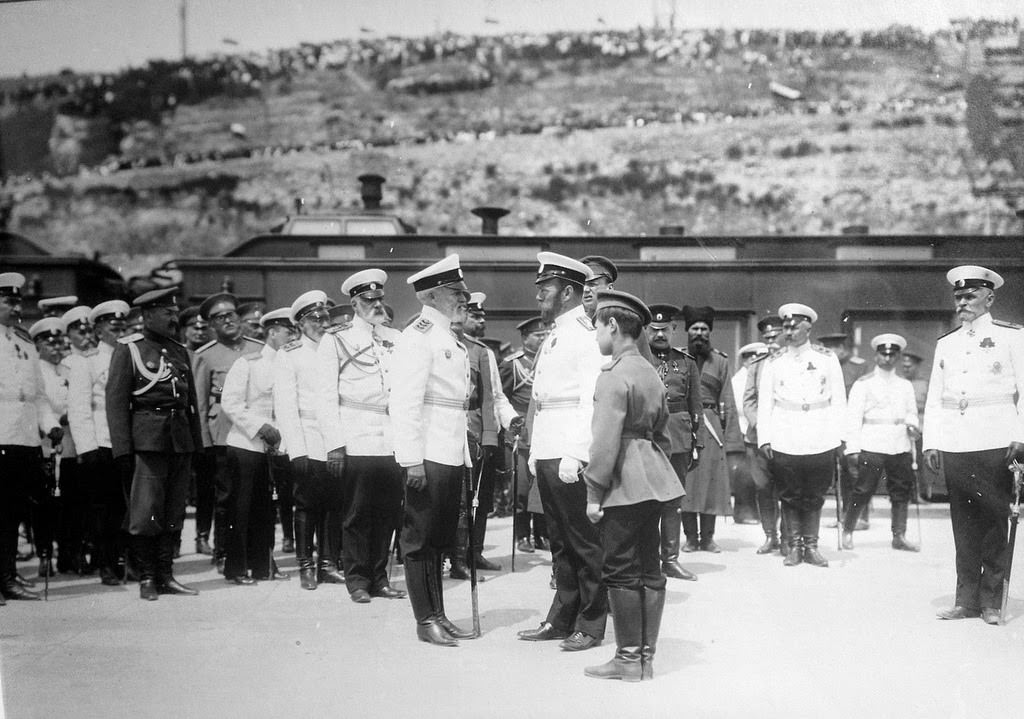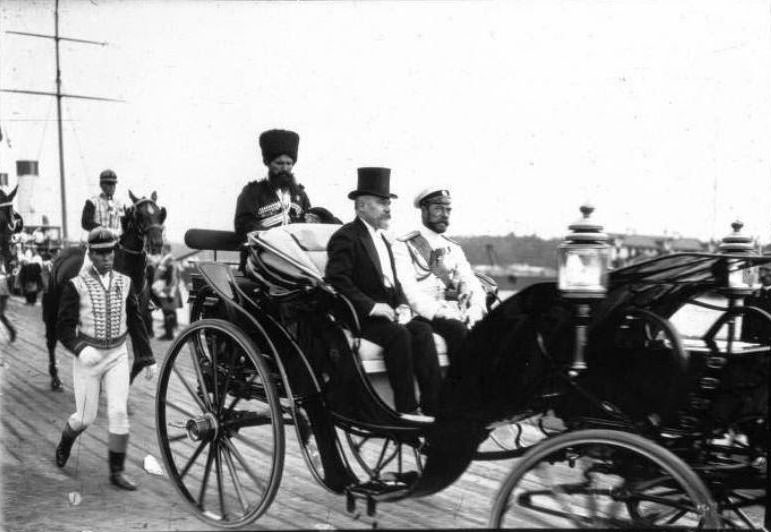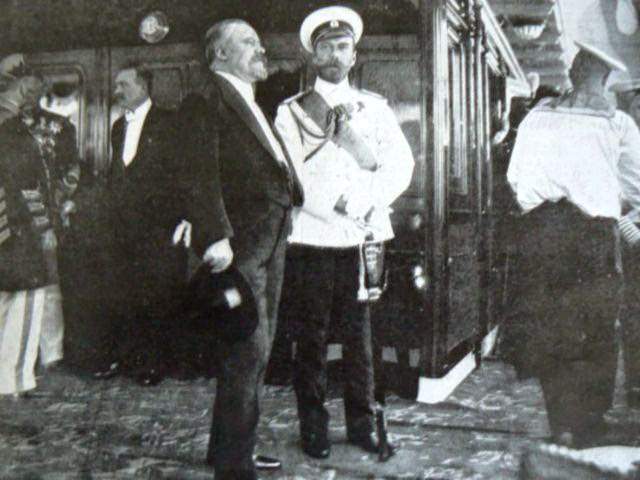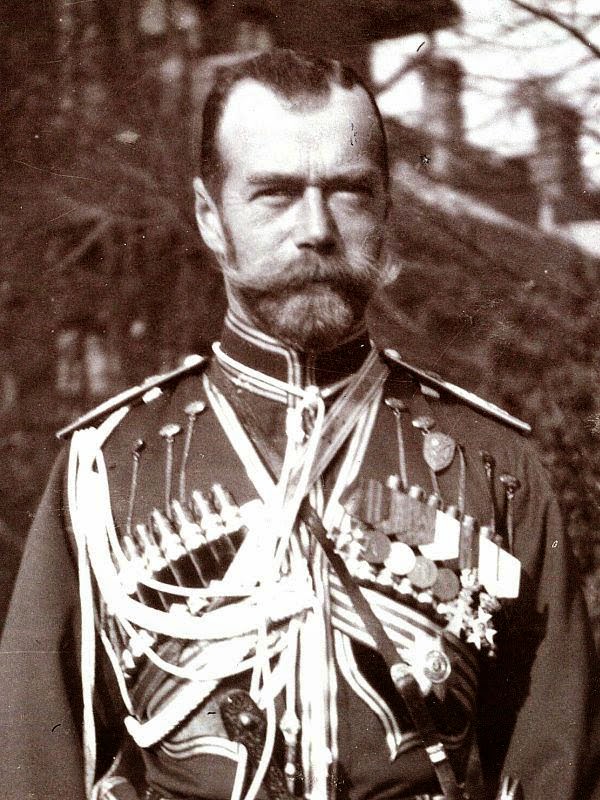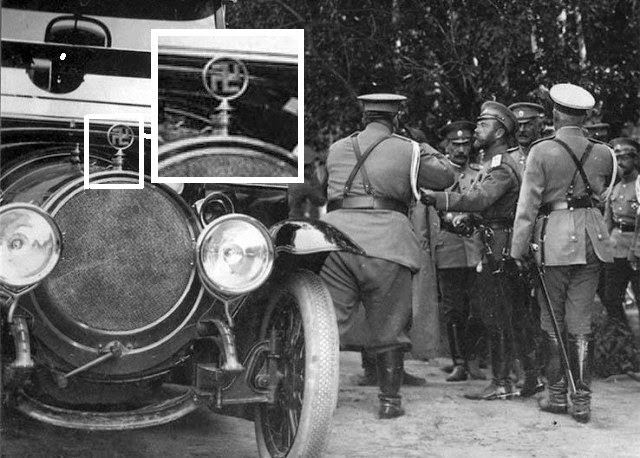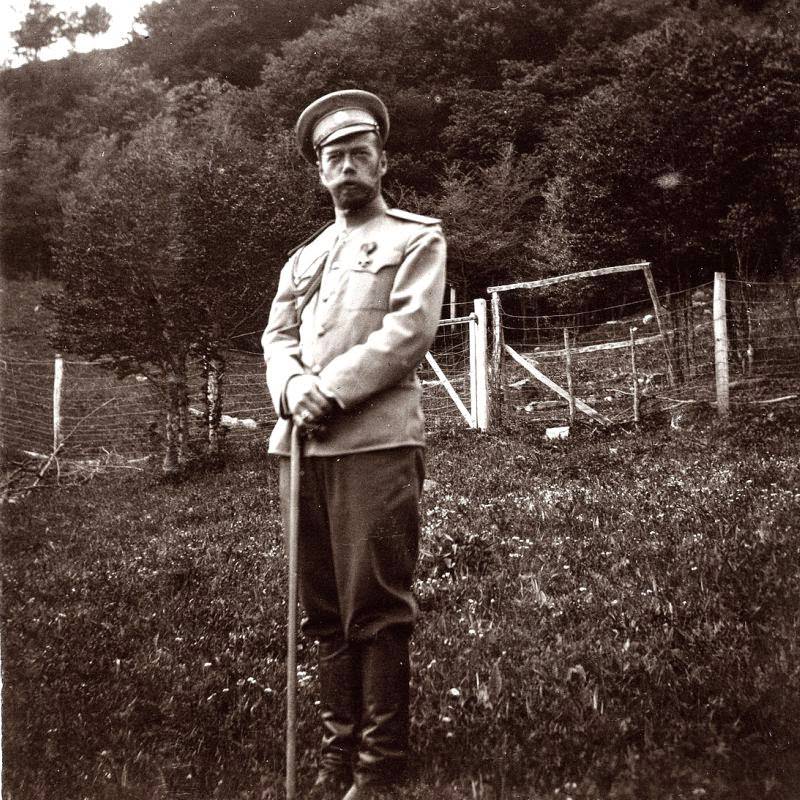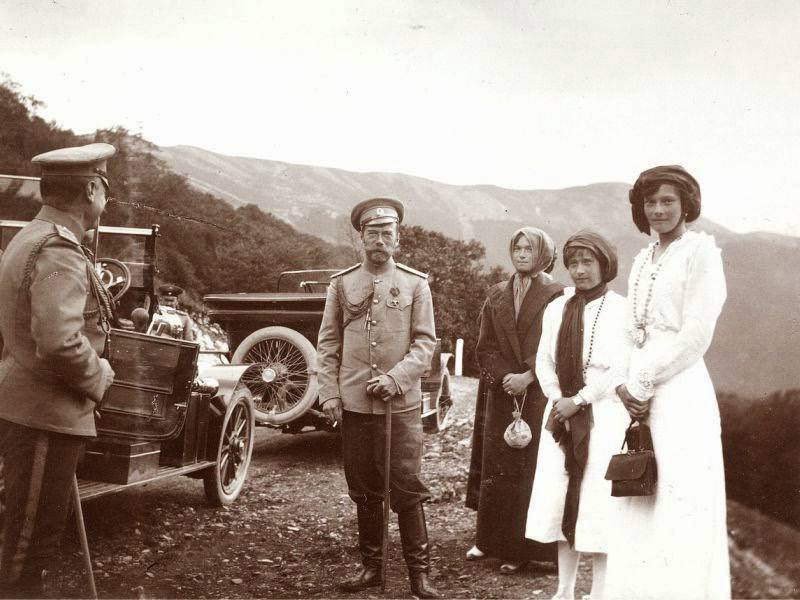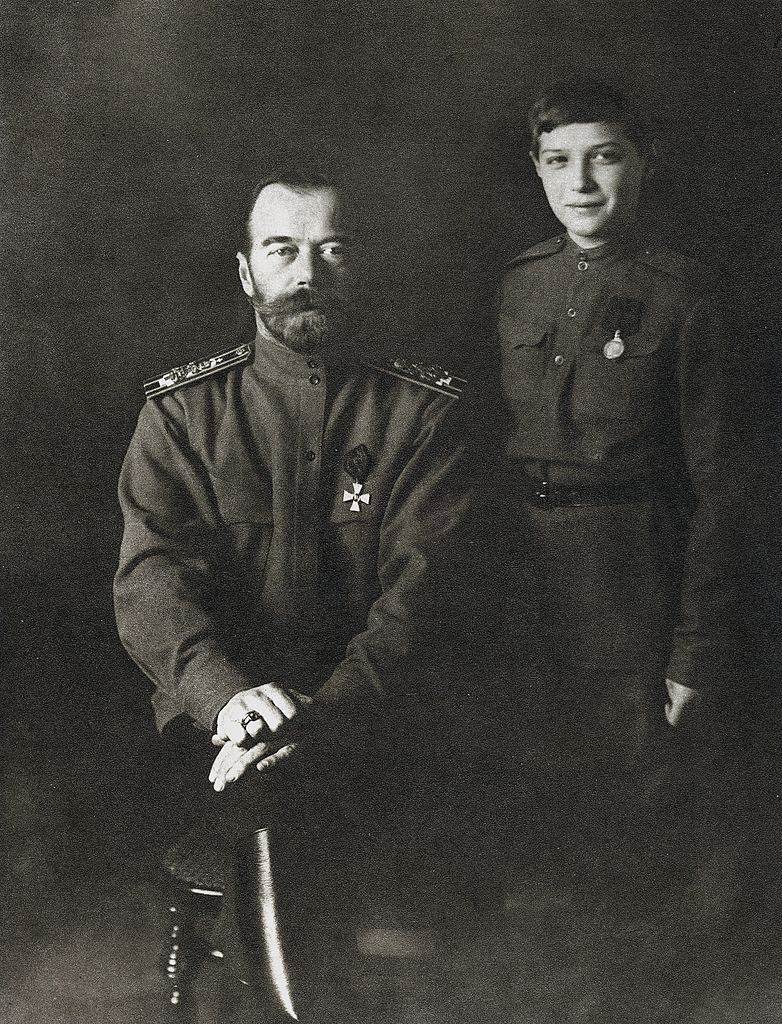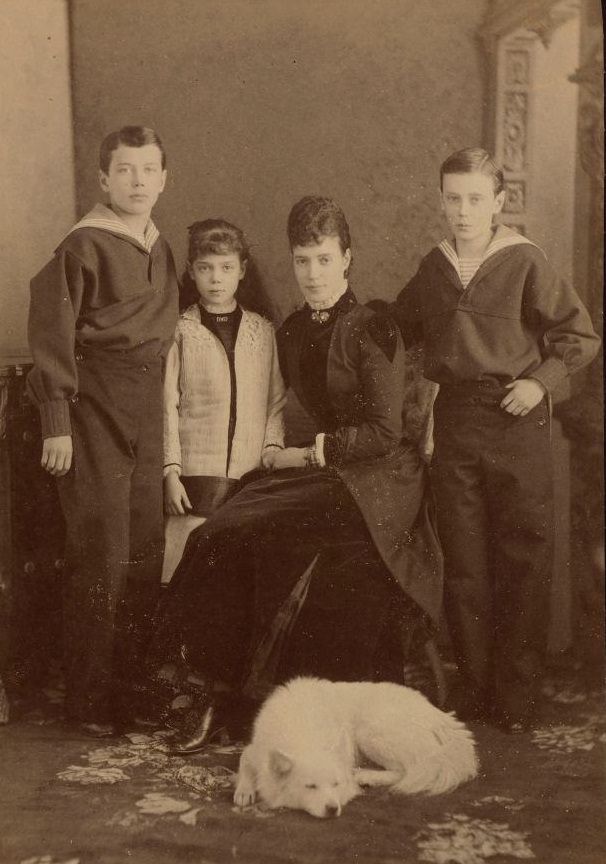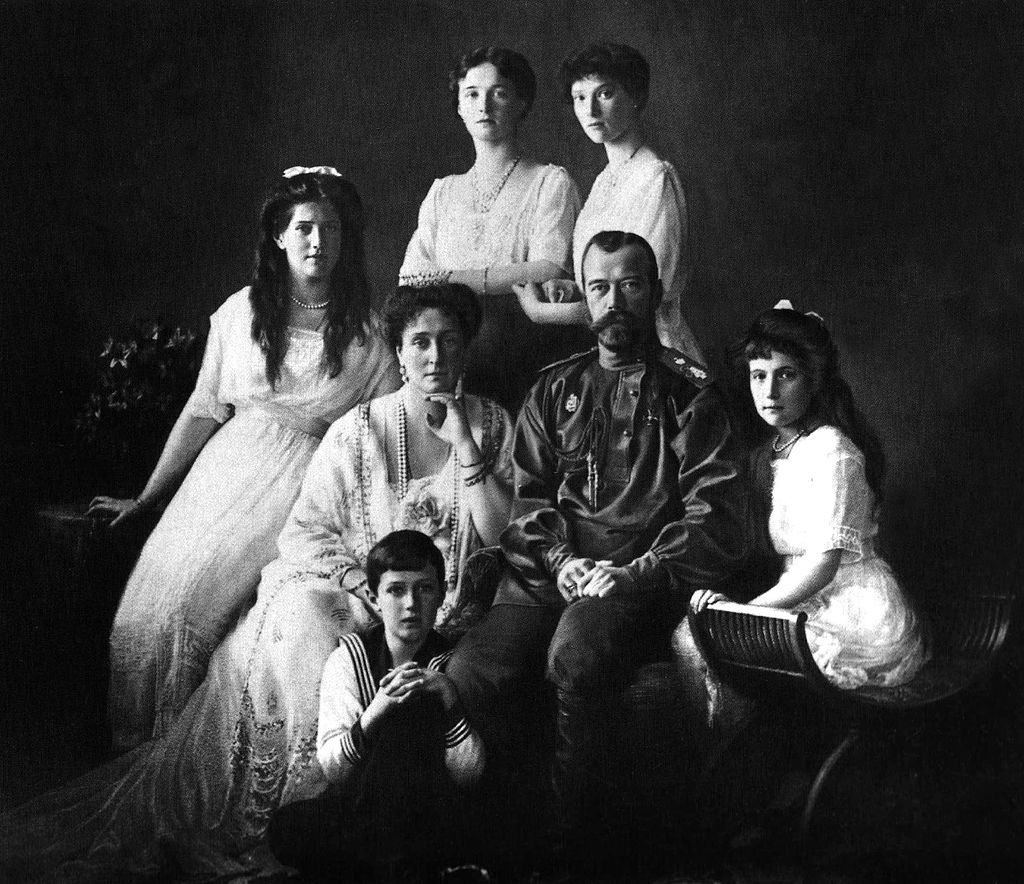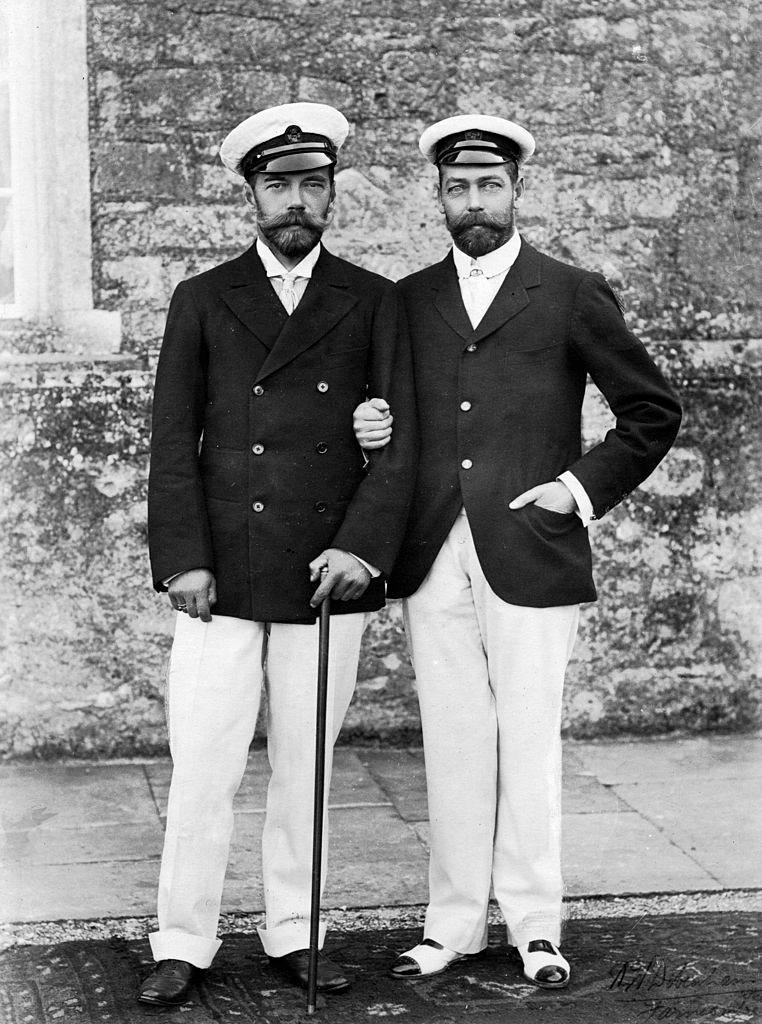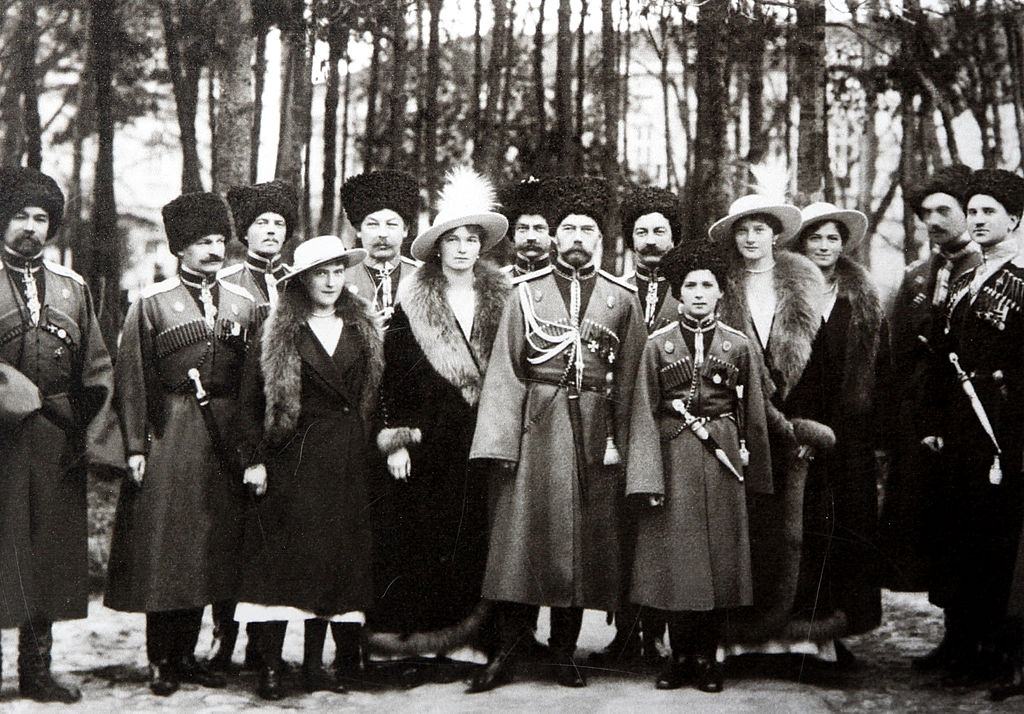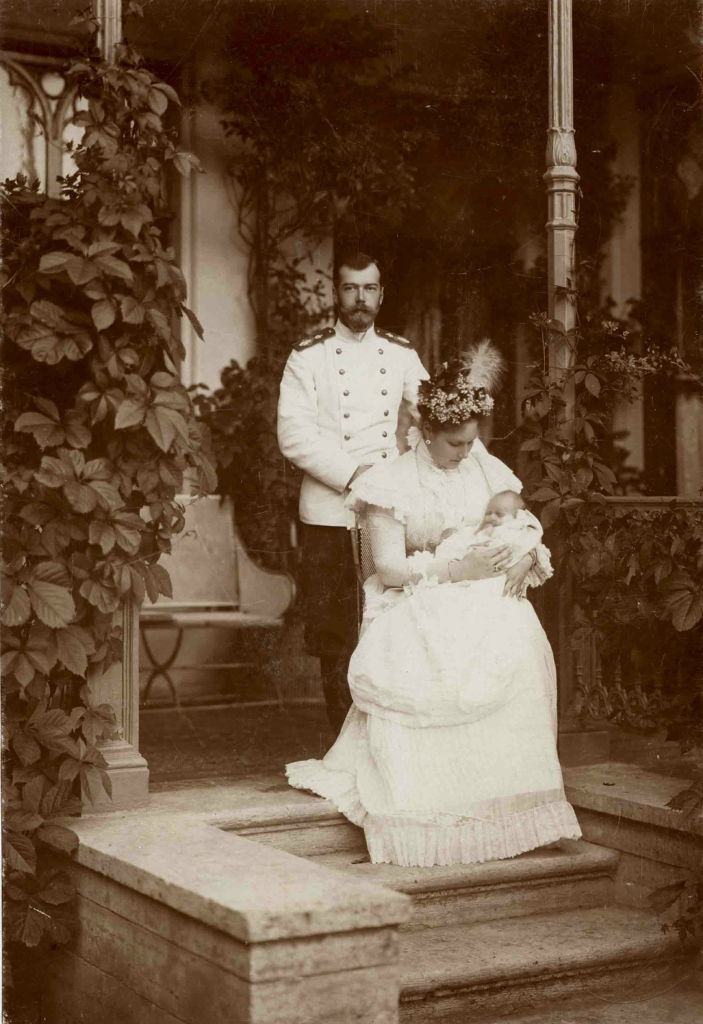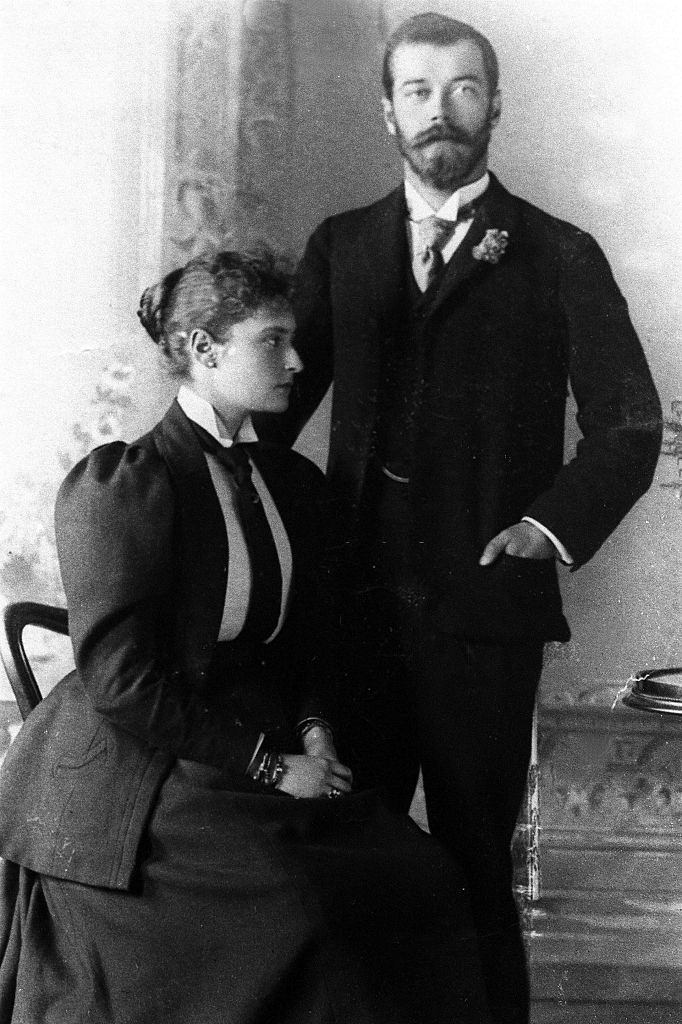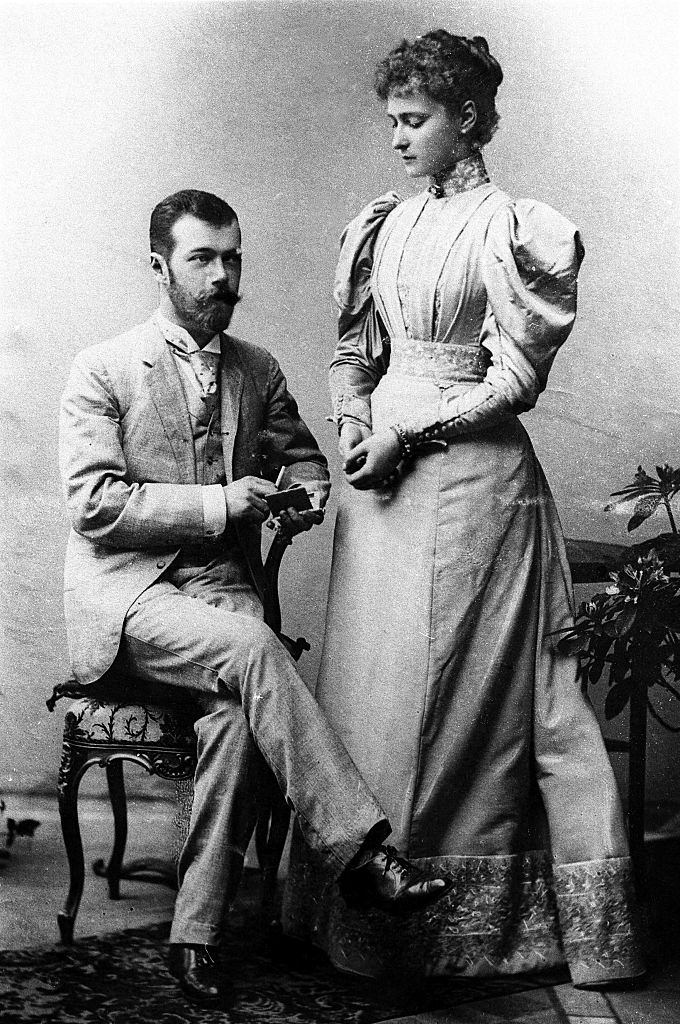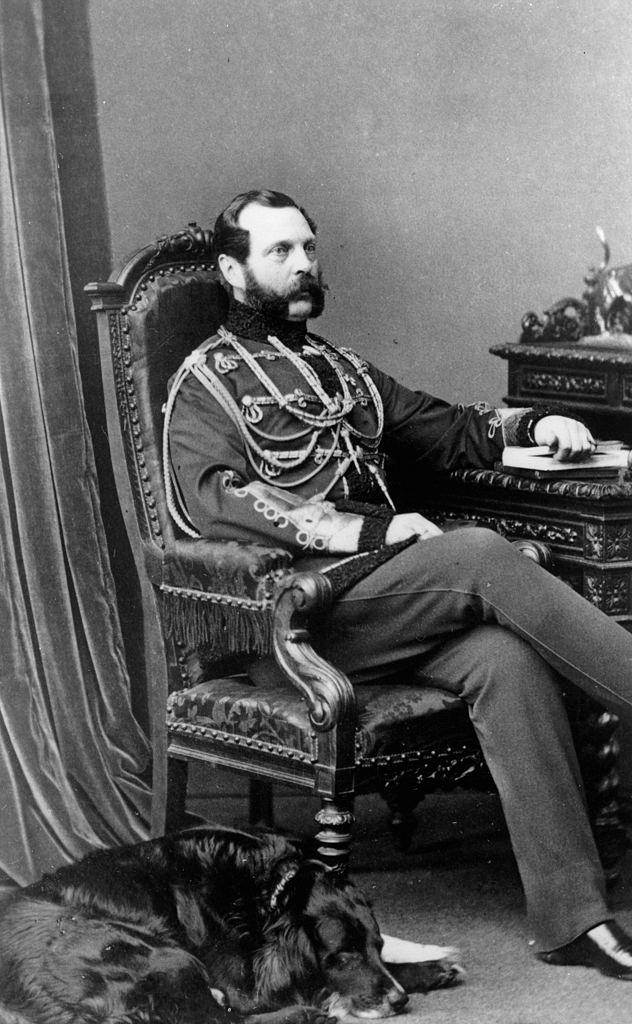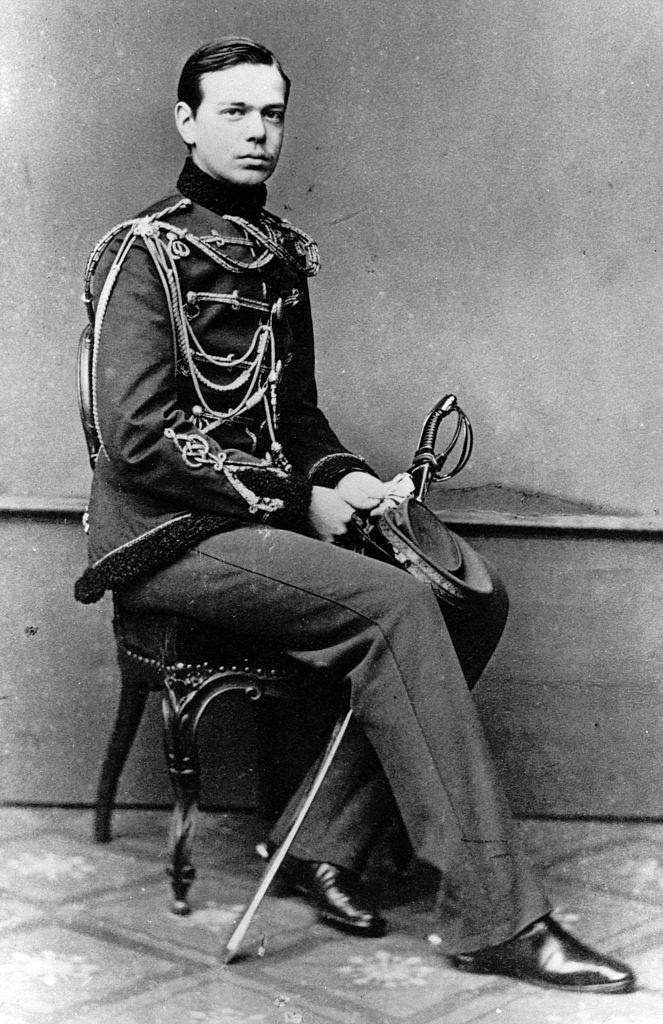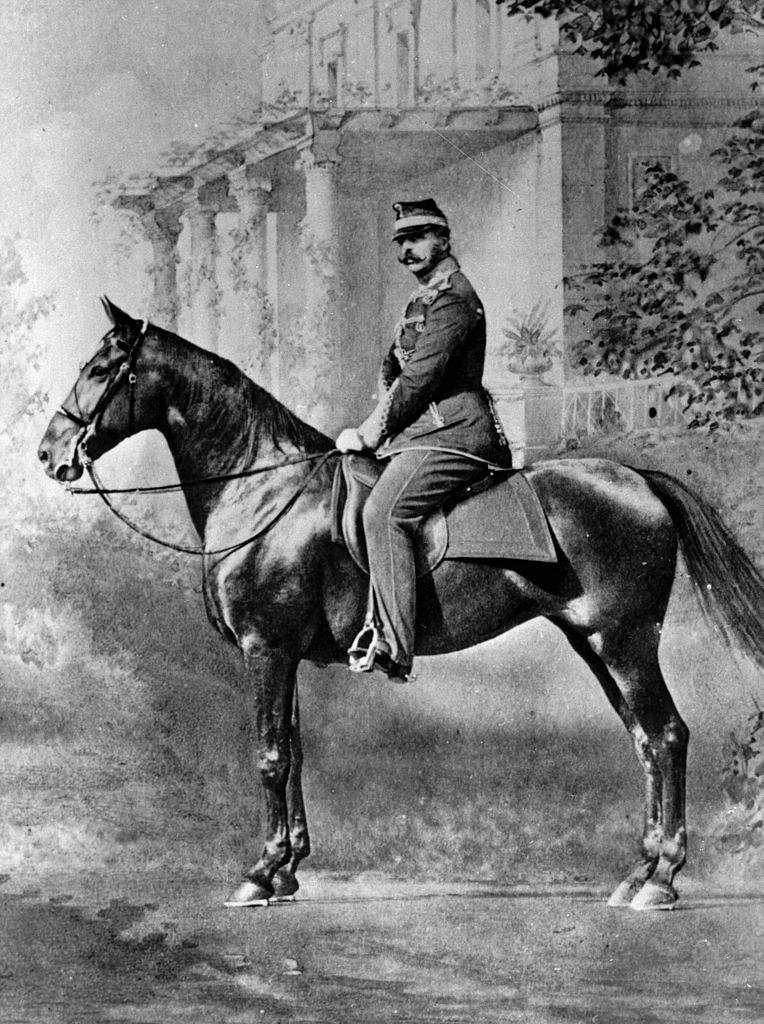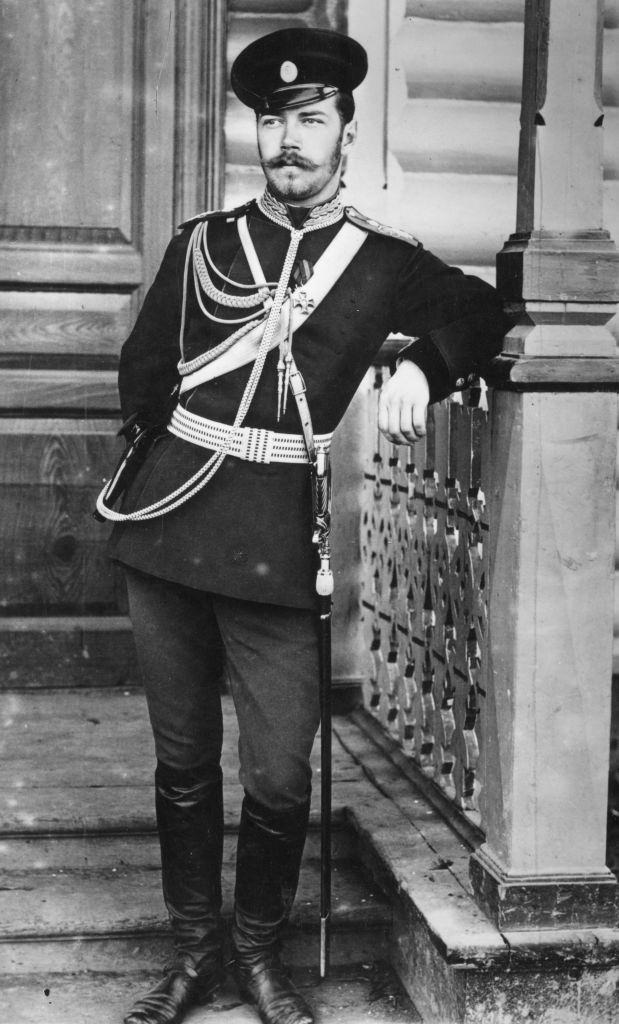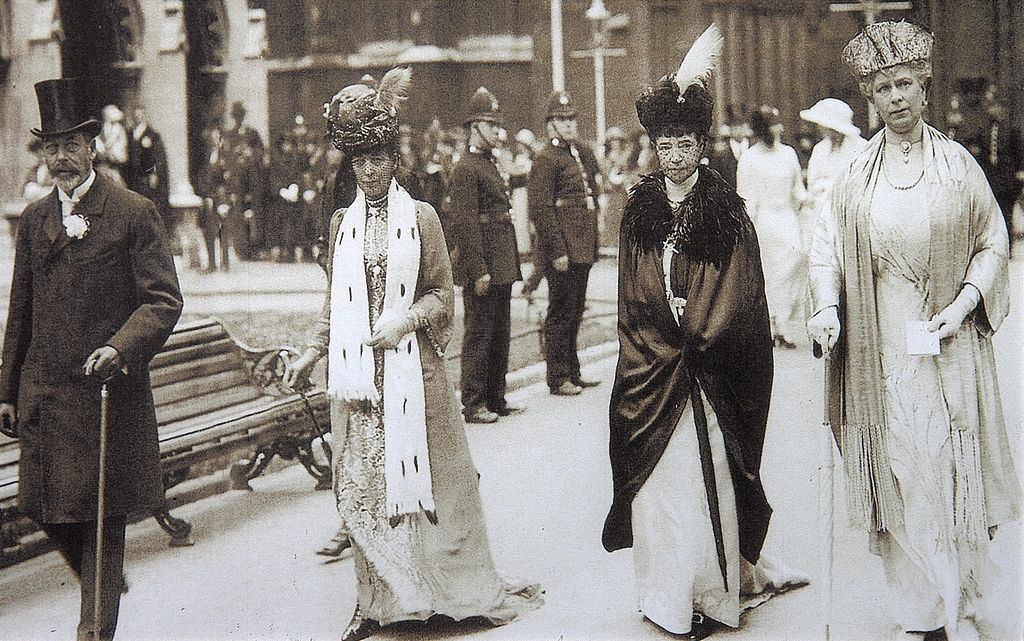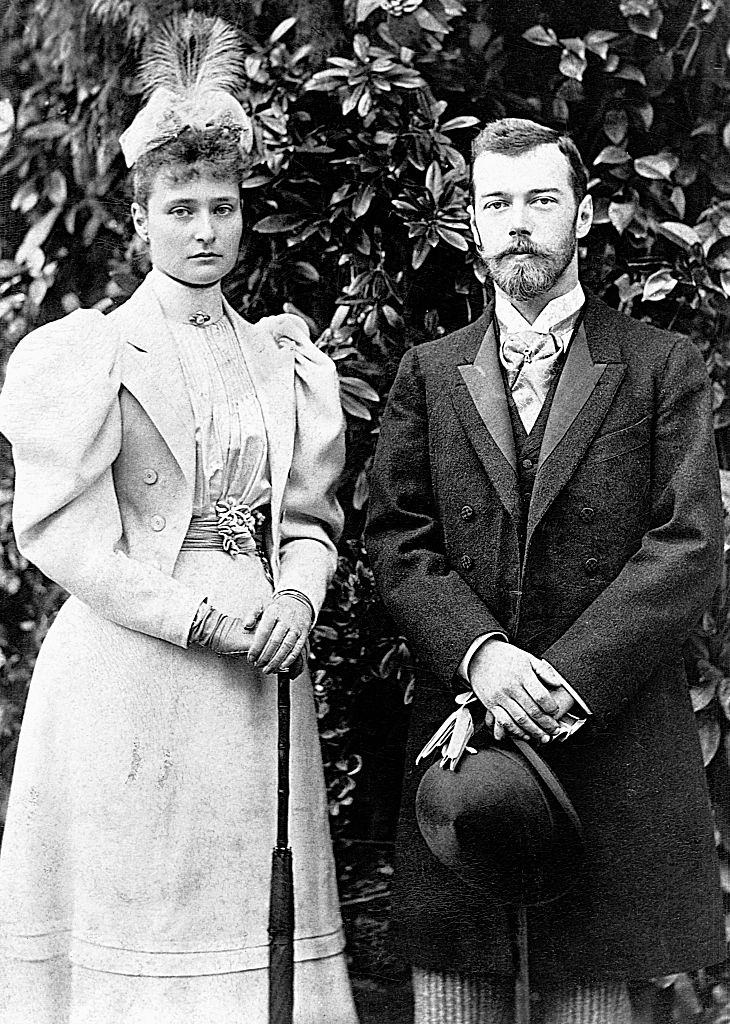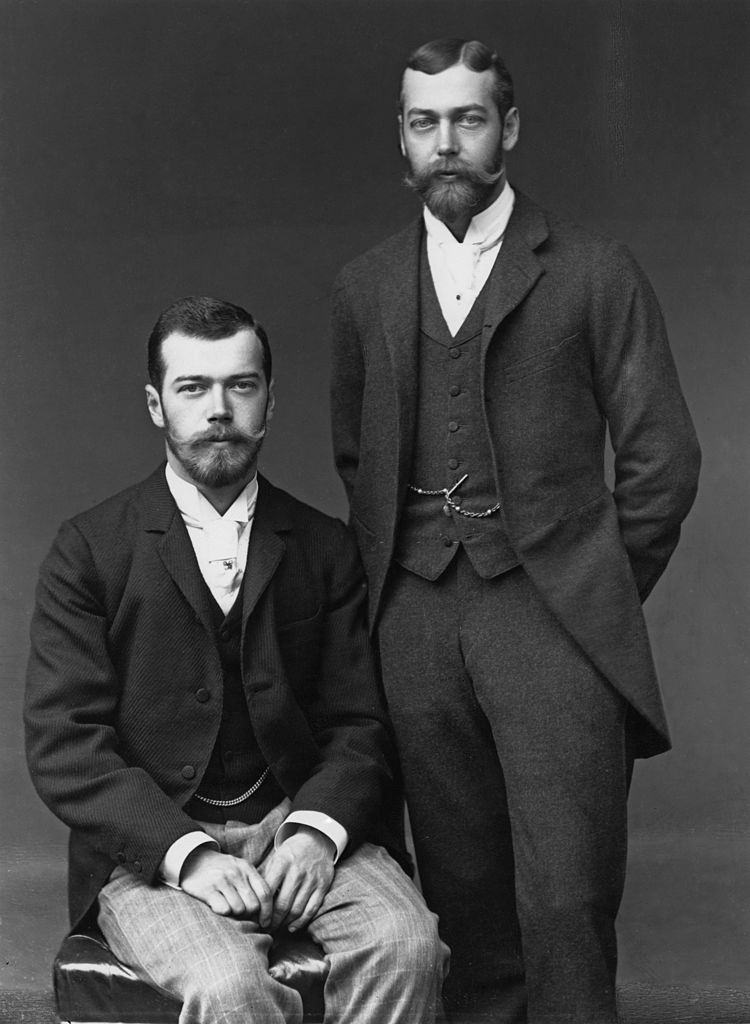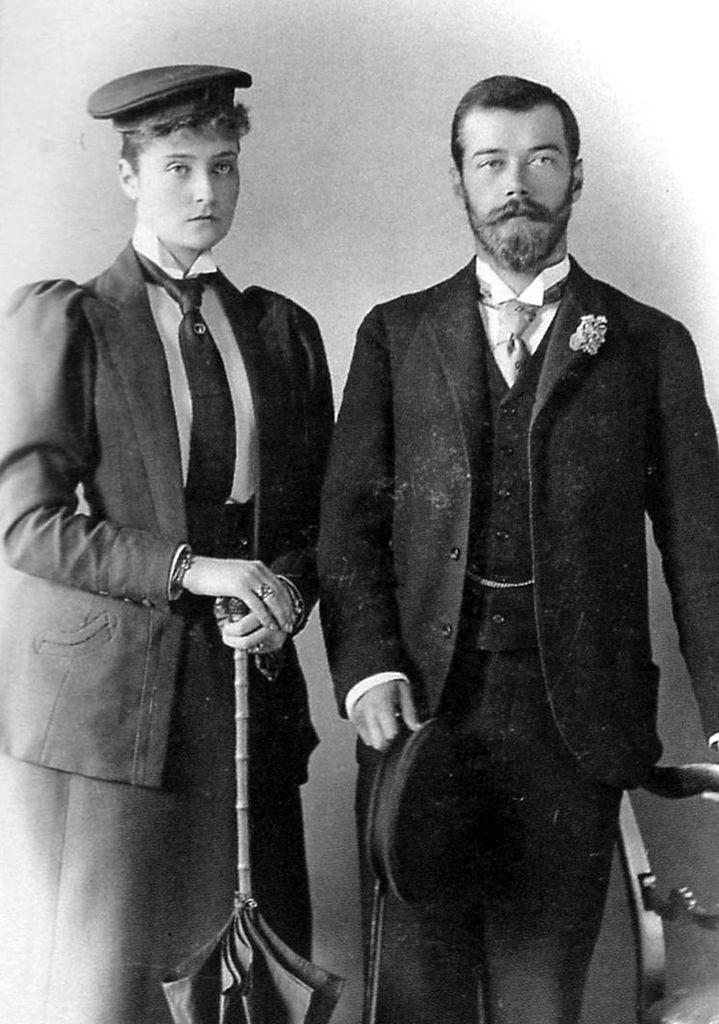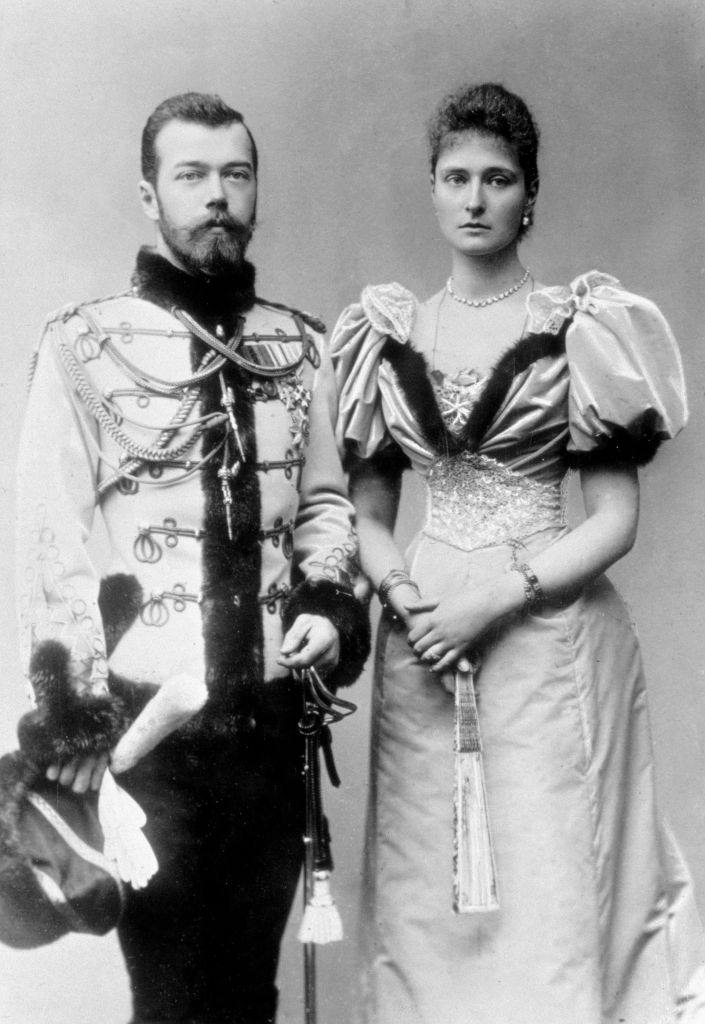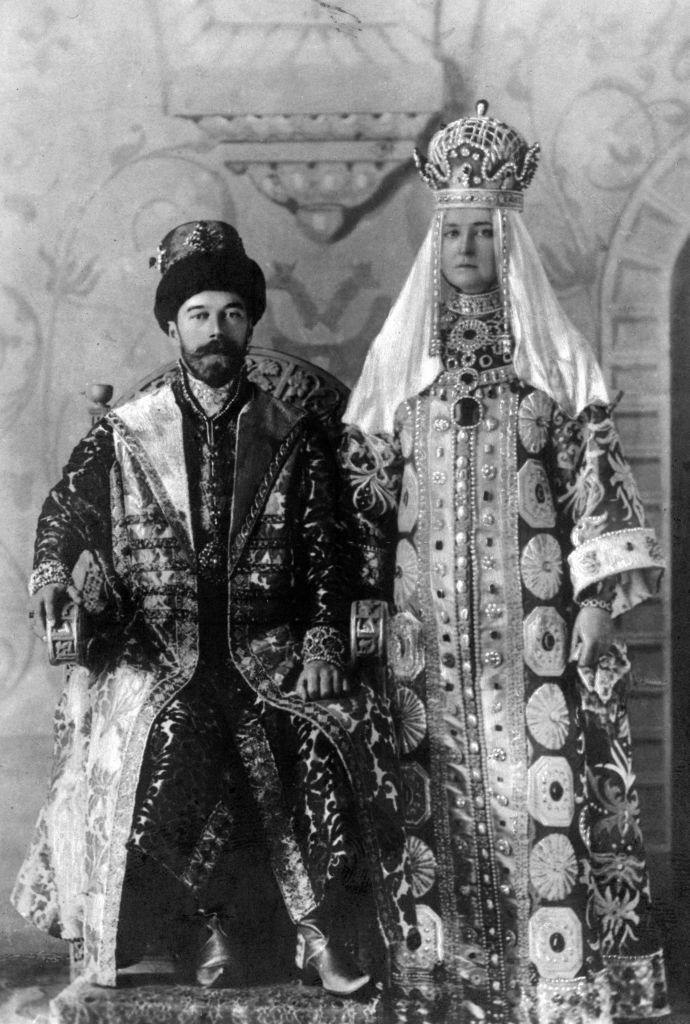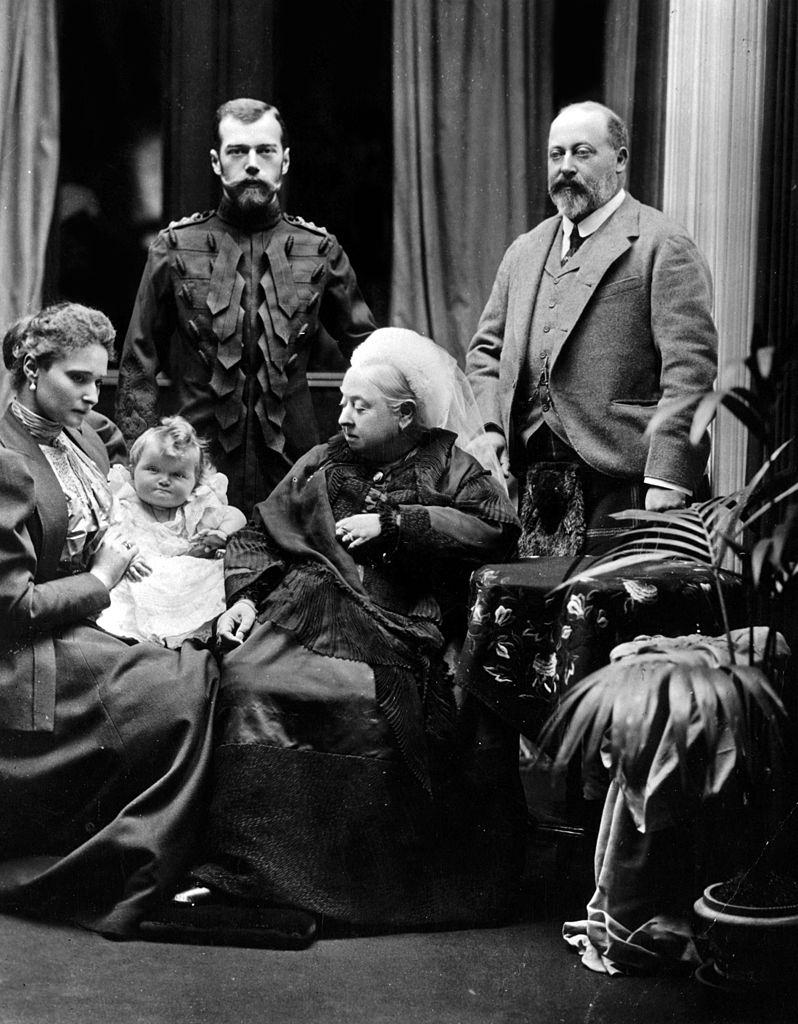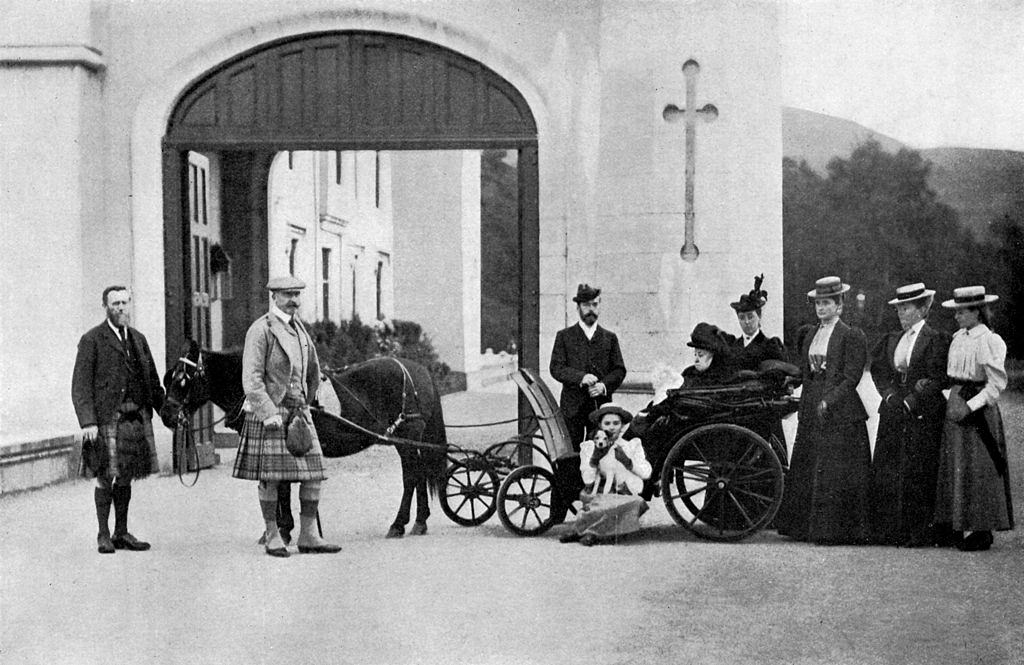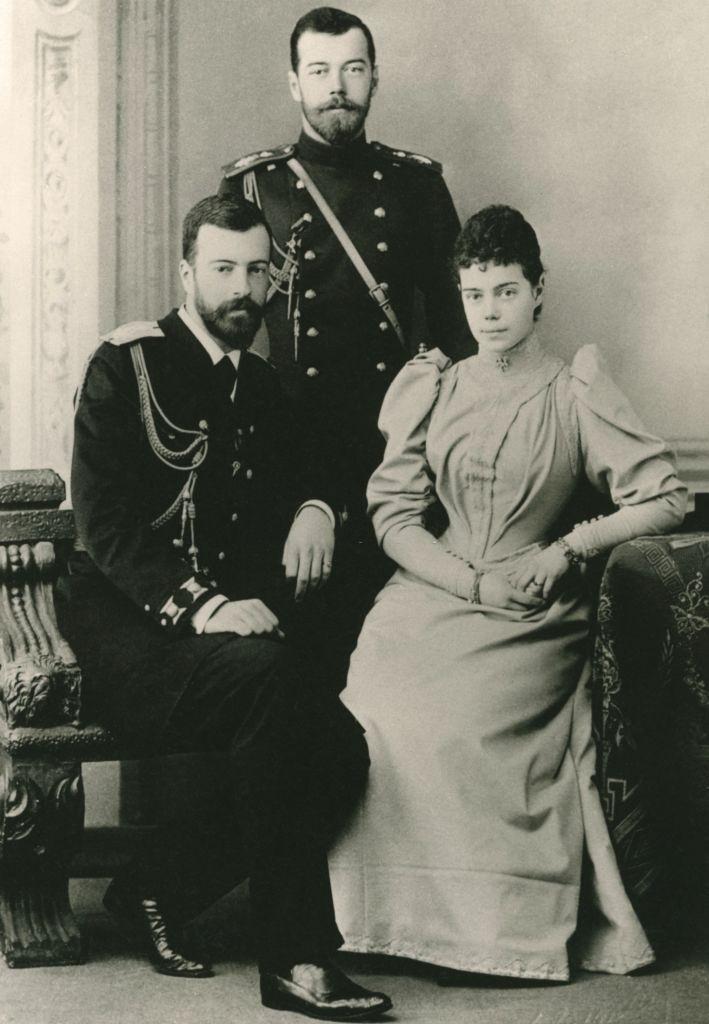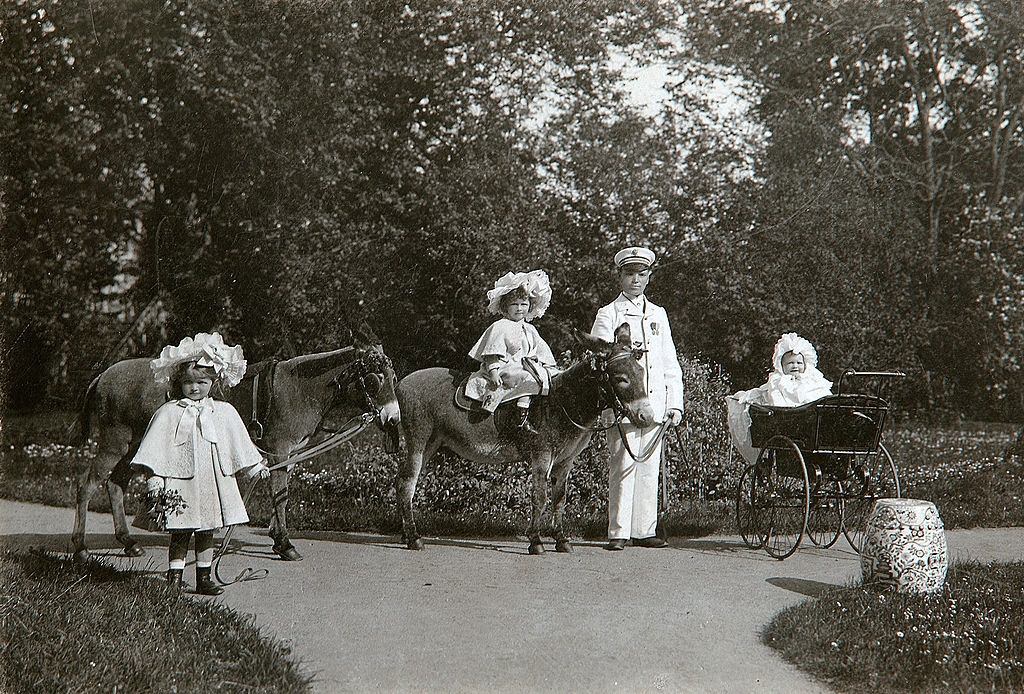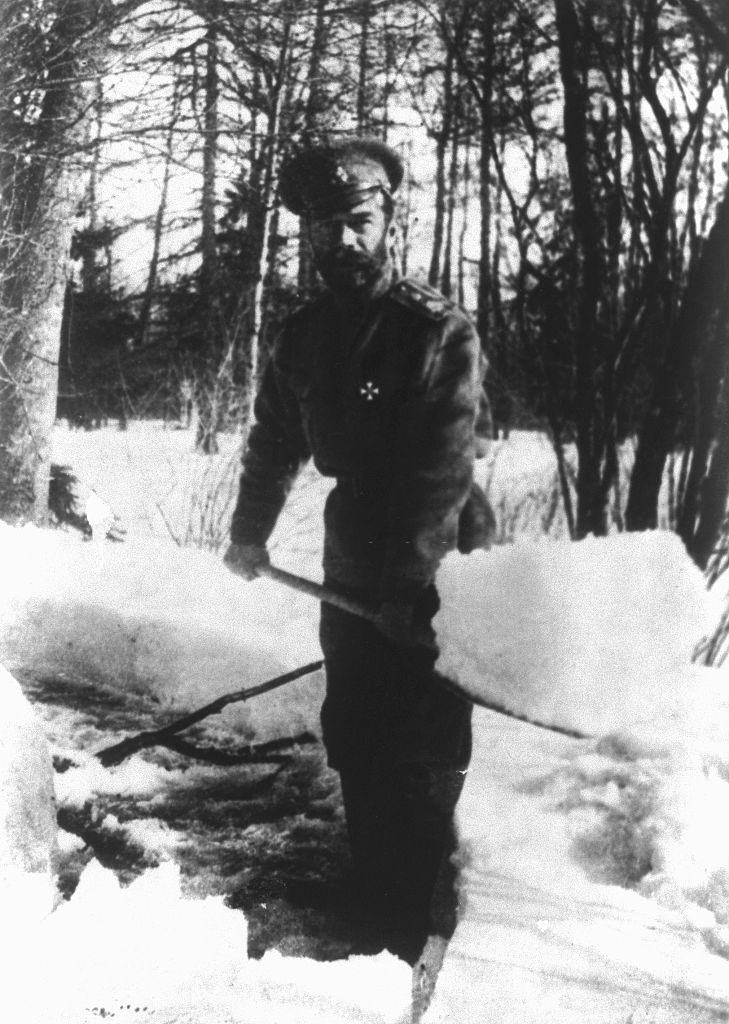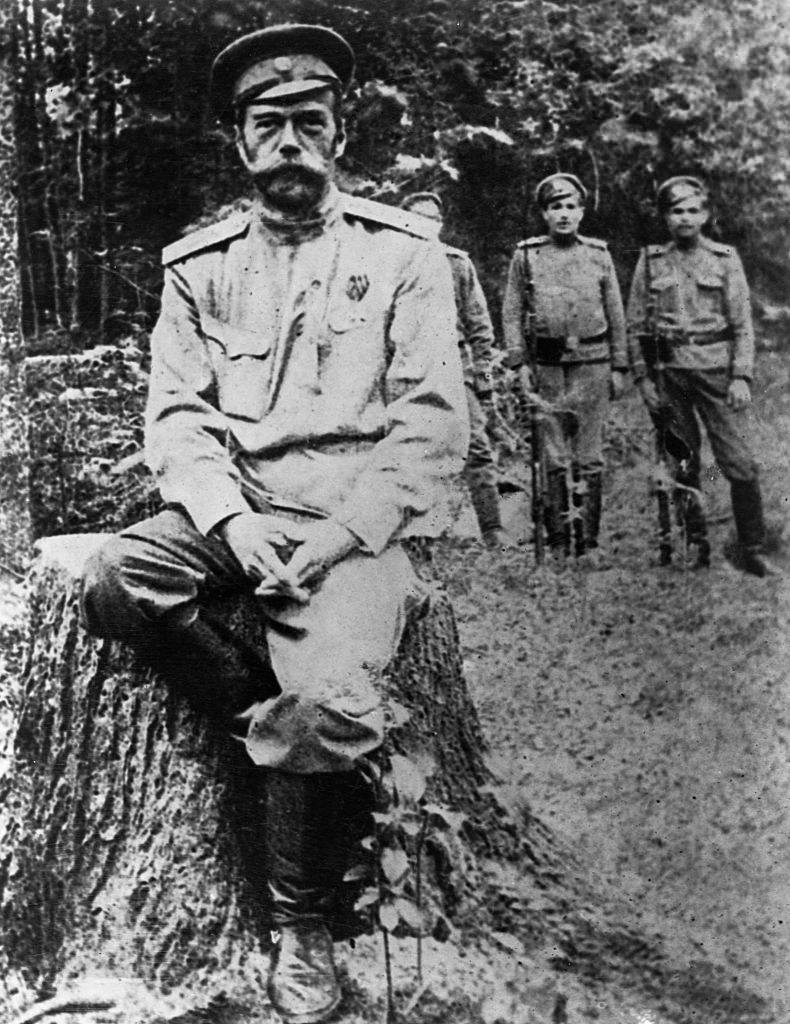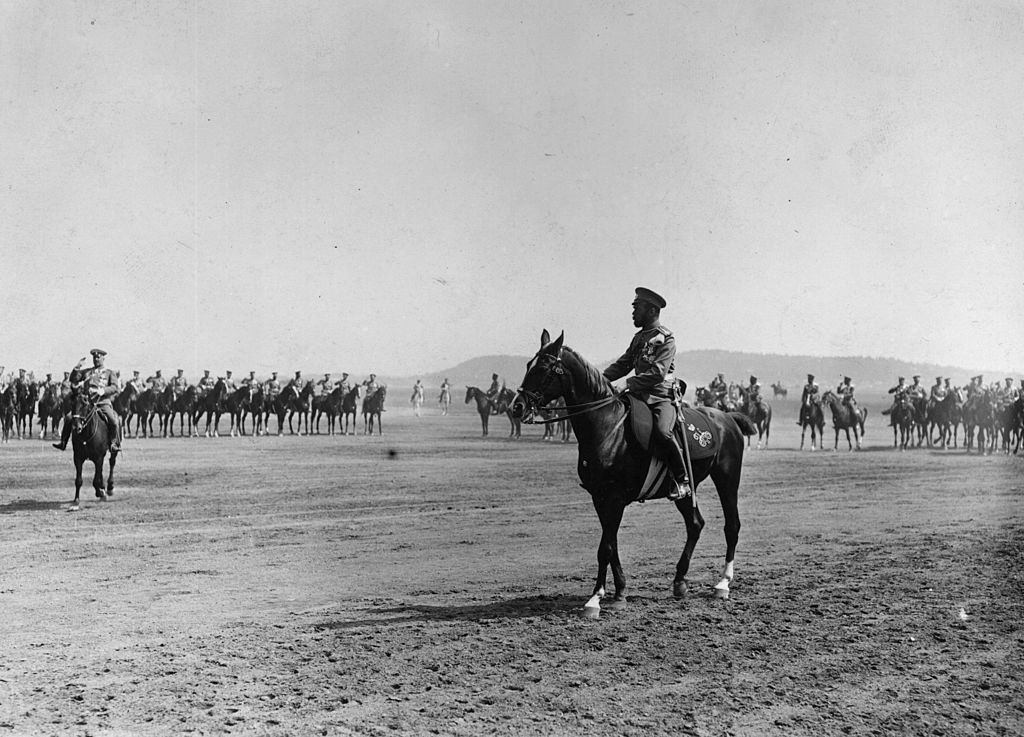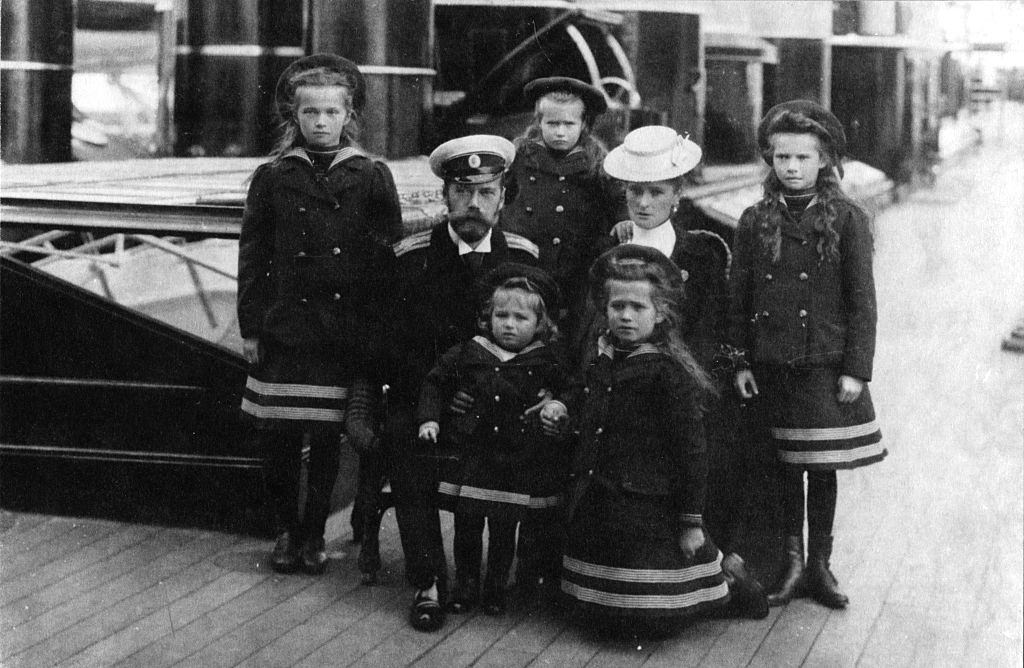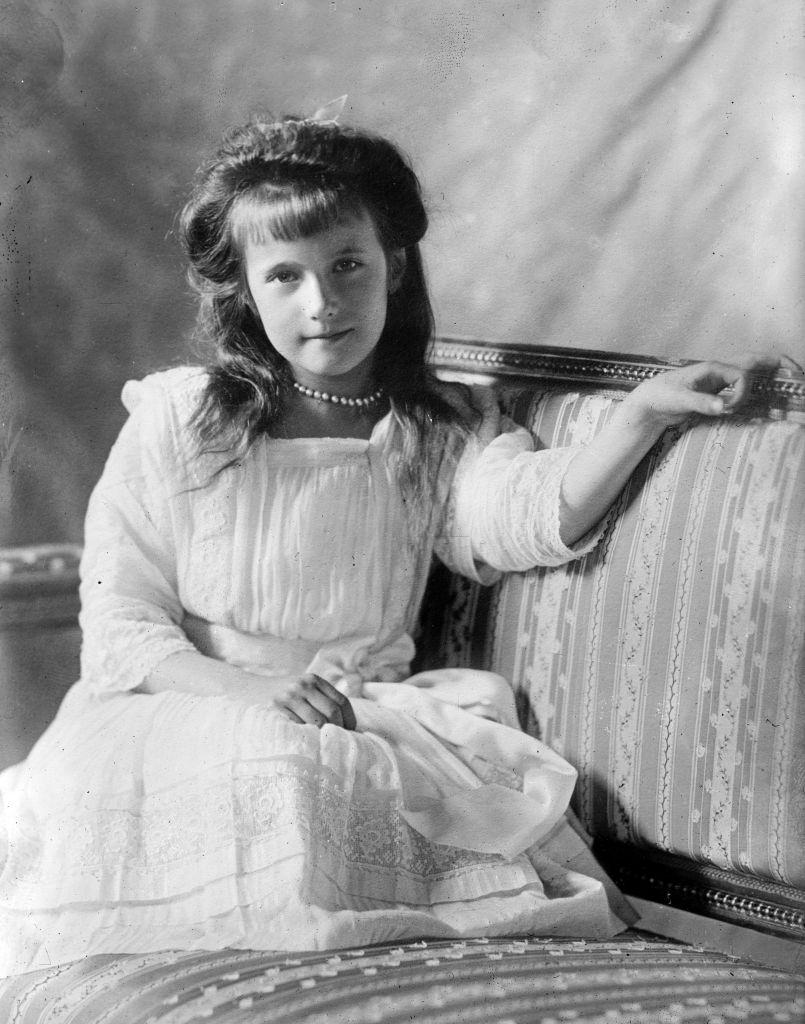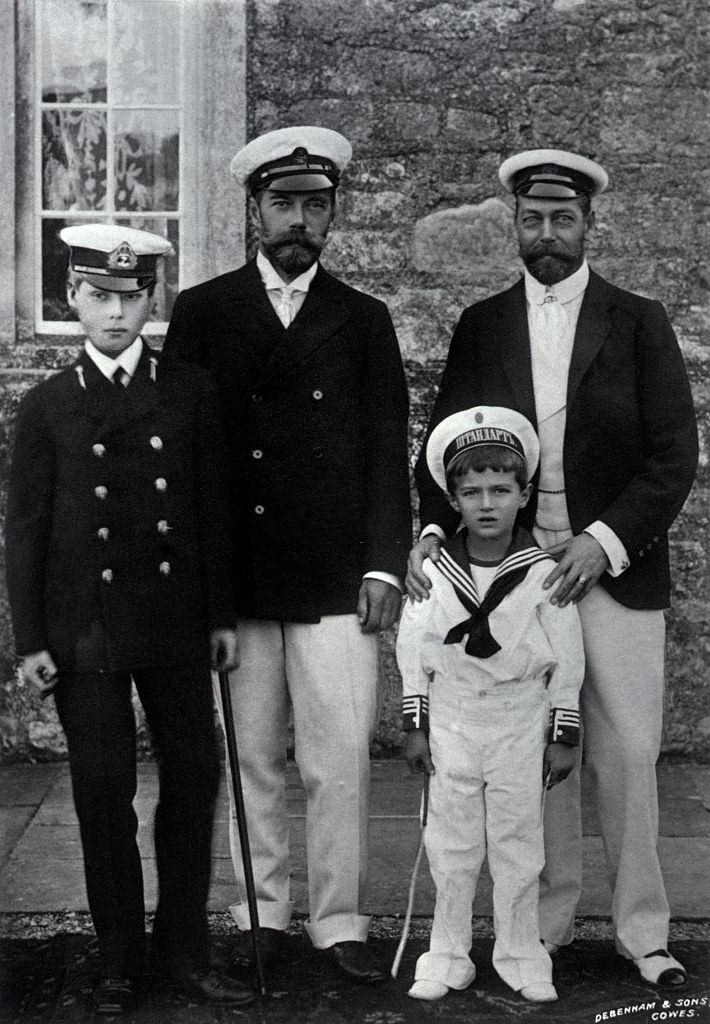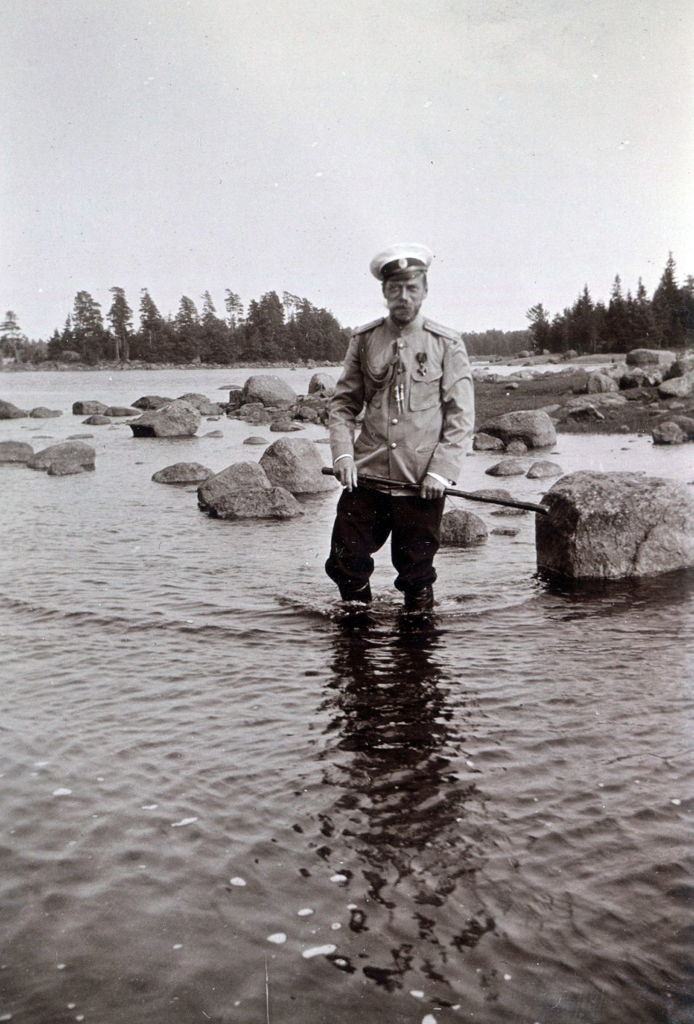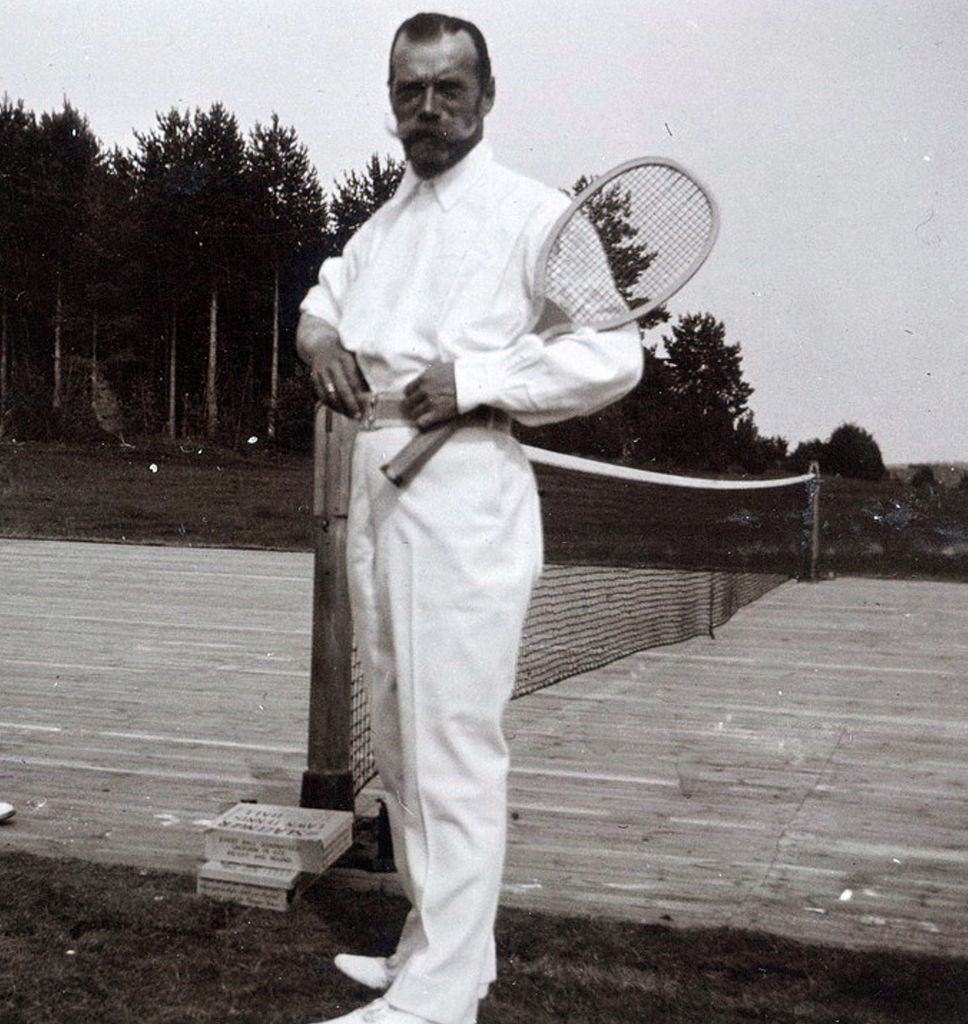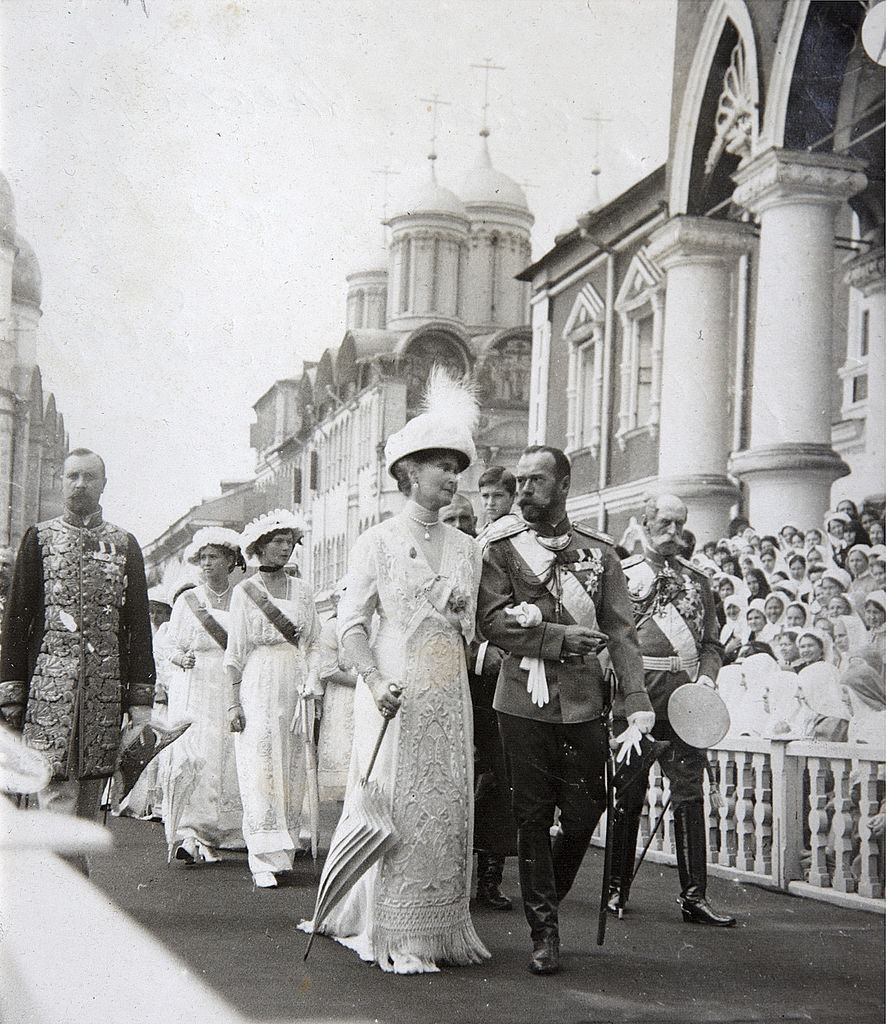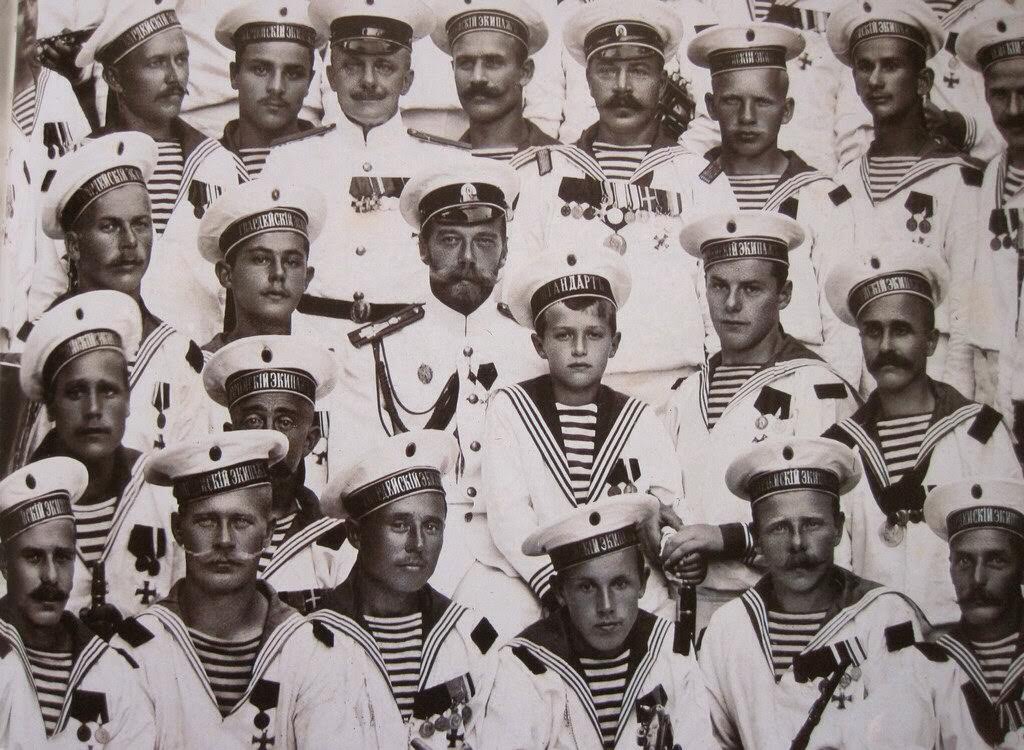Nicholas II was born 18 May 1868 in Tsarskoe Selo, near St. Petersburg, Emperor Alexander III, and Empress Maria Fyodorovna. He received an excellent education at the palace that prepared him for his future role as King of All Russias. The character of Nicholas combined extraordinary restraint (near timidity), a passion for military service and all things military, and the belief that absolute autocracy cannot be violated, traits that later impacted his role as Tsar to greater or lesser degrees.
Nicholas II became emperor unexpectedly after Alexander III suddenly died of kidney failure at Livadia Palace near the Black Sea at age 49. Nicholas was engaged to Princess Alice of the small German state of Hesse at the time of this tragedy. Nicholas decided to get married immediately after his father’s death, and the honeymoon was spent in mourning, even though it was the traditional custom to wait a year after the death of a monarch. Despite the luxury of the coronation of Nicholas and Alexandra (as she had been called after converting to Orthodoxy), the celebrations on Khodynskoe Field on the outskirts of Moscow were marred by tragedy. Rumors that there would not be enough beer and pretzels resulted in a stampede in which almost 1,400 people died.
As soon as Nicholas came to power, he clarified that constitutional reform was impossible and that the autocracy was inviolable. Although monarchists were pleased with this decision, the educated elite and liberal intelligentsia were disappointed. During Nicholas II’s reign, the Russian economy expanded overall. A result of this growth was the conversion of the rouble to gold in 1897. By 1913, the country had reached its highest economic development level, so later, Russian successes were meant to be compared with this year.
Nicholas and his family faced a tragic fate. Nicholas abdicated in the wake of the February Revolution, and he and his family were placed under house arrest at Tsarkoe Selo near Petrograd. King George V refused to assent to the Foreign Minister, Paul Milukov, that the Royal Family be exiled to Great Britain because of unstable conditions there. In August 1917, the Provisional Government exiled the former Tsar and his family to Tobolsk. In the spring of 1918, the Bolsheviks moved them to Ekaterinburg. In July 1918, Nicholas, Alexandra, and their five children were shot and killed in the house of the merchant Ipatiev.
#1 Nicolas sharing breakfast with his son Alexei in 1909.
#2 Tsar Nicolas II and his daughters on a cannon, .1910s.
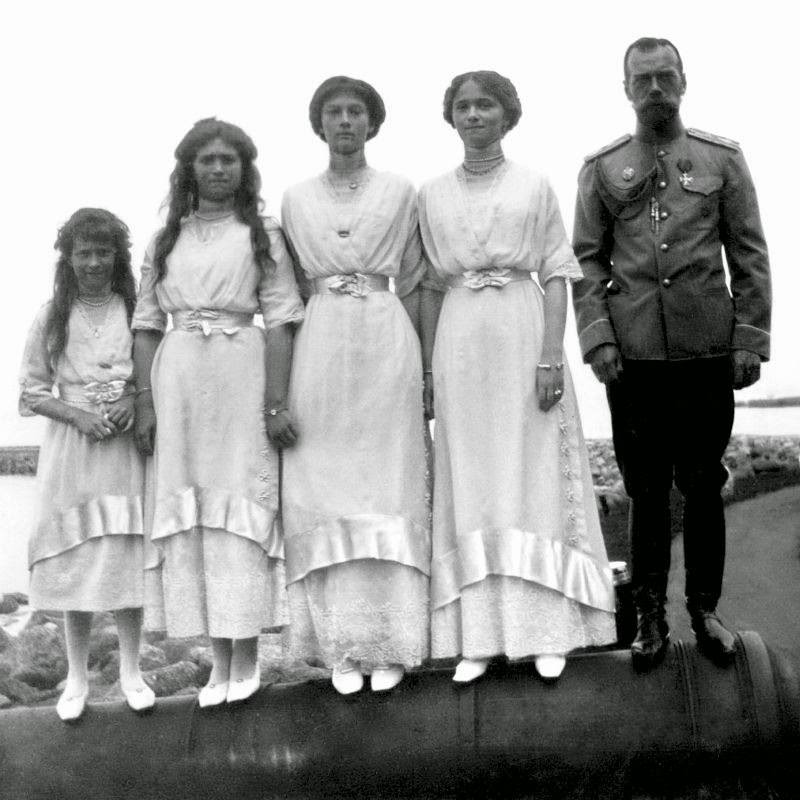
From left to right, Anastasia Nicolaïevna Romanov, Maria Nicolaïevna Romanov, Tatiana Nicolaïevna Romanov and Olga Nicolaïevna Romanov near their father, Nicolas II Romanov, tsar of all Russias, a good father, proud of his daughters. A moment of happiness during a family holidays on the Black Sea, probably in Crimea.


